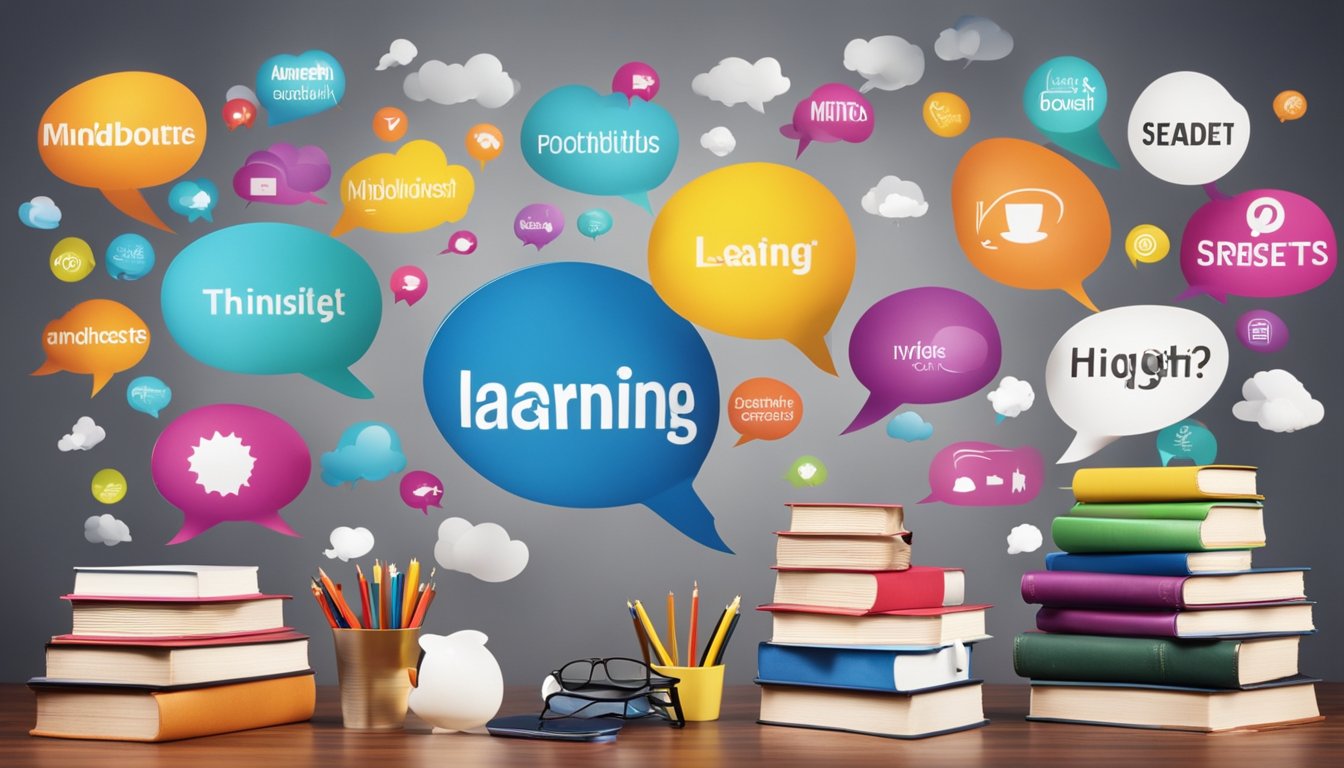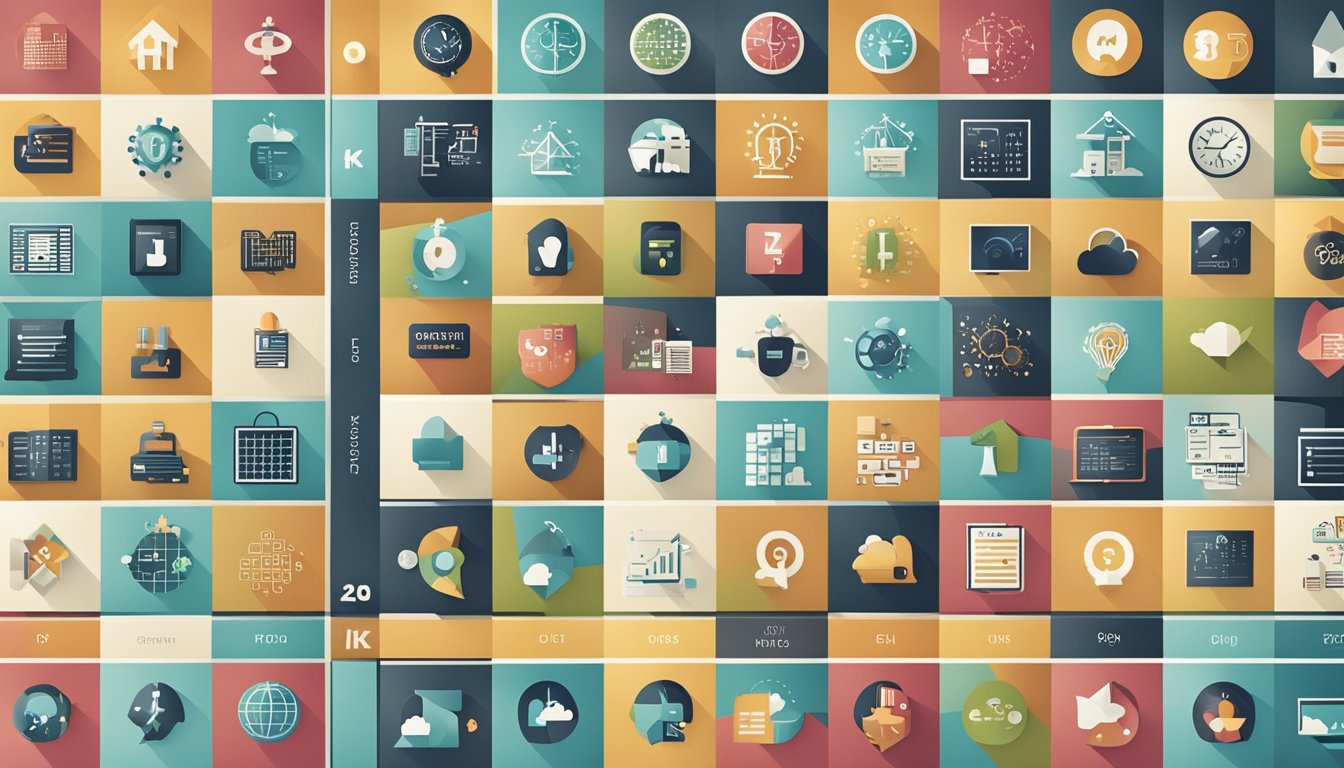Understanding the Different Types of Mindsets
Key Takeaways
- Mindset influences behavior, problem-solving, and the pursuit of success.
- Growth and fixed mindsets significantly impact personal and professional development.
- Social and psychological factors can shape and change an individual’s mindset over time.
Our thoughts and beliefs, collectively known as our mindset, play a profound role in shaping our lives. Whether we excel in personal development, thrive in the workplace, or embrace challenges with enthusiasm hinges on the mindset we adopt.
Dr. Carol S. Dweck’s groundbreaking research has identified two primary types of mindsets: the fixed mindset and the growth mindset. Those with a fixed mindset believe that their abilities are set in stone, limiting their potential for growth. On the other hand, individuals with a growth mindset embrace challenges, persevere through setbacks, and believe in their ability to learn and improve.
Our mindsets go beyond these two categories, encompassing a spectrum from positive to entrepreneurial, influencing how we perceive and interact with the world around us. The impact of our mindset extends far beyond personal development, shaping our workplace performance, learning experiences, and even our overall health and well-being.
Individuals with a growth mindset thrive on challenges, viewing them as opportunities for learning and growth. They embrace criticism as a chance to refine their skills and knowledge, setting themselves up for success in both their personal and professional lives. Conversely, those with a fixed mindset may shy away from challenges and feel threatened by the success of others.
Our mindsets are not set in stone. Social and psychological factors throughout our lives shape our perspectives, but we have the power to cultivate a growth mindset through conscious effort and effective strategies. By adopting a growth mindset, we open ourselves to a world of possibilities, empowering us to achieve our full potential.
Remember, our mindsets are the keys to unlocking our potential. Embrace challenges, learn from setbacks, and never stop believing in your ability to grow and succeed.
Understanding Types of Mindsets
Mindsets shape how individuals perceive and navigate the world. They influence the approach to challenges and learning, as well as the perception of resources and attitudes toward life events.
Before going on, you might want to take a quick 10 question quiz to see what mindset you have here.
Growth Versus Fixed Mindset
The distinction between growth and fixed mindset revolves around one’s belief in the malleability of abilities and intelligence. With a growth mindset, established by psychologist Carol Dweck, individuals understand that their talents and capabilities can be developed through dedication and hard work. They see failures as opportunities to learn and grow, hence are more resilient in the face of challenges. In contrast, those with a fixed mindset see their qualities as static and unchangeable, which can lead to a reluctance to pursue skill enhancement or challenges due to fear of failure.
Abundance Versus Scarcity Mindset
An abundance mindset is marked by the belief that there are ample resources and successes to be shared. People with this outlook see opportunities and possibilities, which encourages collaborative success and openness to new experiences. On the other hand, scarcity mindset is characterized by the viewpoint that resources, whether they be success, wealth, or happiness, are limited. This can result in competitive behavior, negative stress, and short-term thinking, as individuals focus on maintaining their slice of a perceived finite pie.
Positive Versus Negative Mindset
Having a positive mindset relates to a tendency to focus on the good in situations and to expect favorable outcomes. It is linked to resilience, better stress management, and improved health outcomes. A negative mindset, conversely, is associated with a focus on the negative aspects, expecting adverse outcomes which can lead to a self-fulfilling prophecy of failure and dissatisfaction. The understanding of these mindsets emphasizes the power of perspective in shaping one’s experience and the importance of nurturing a more positive view to foster well-being and personal success.
How Mindset are formed
The core elements of mindsets are rooted in one’s beliefs and attitudes, which directly influence their behaviors and responses to various situations. Mindsets determine how an individual perceives and reacts to challenges and changes in their environment.
Beliefs and Attitudes
An individual’s beliefs and attitudes play a crucial role in shaping their mindset. These are the fundamental assumptions and evaluations they hold about themselves, others, and the world around them. For instance, one may hold the belief that abilities can be developed over time, characteristic of a growth mindset, or the belief that abilities are innate and unchangeable, indicative of a fixed mindset. These core beliefs about personal potential and control over one’s capabilities can significantly affect both motivation and the effort put into learning and development.
- Trust: The degree of trust one places in the possibility of personal change impacts their overall outlook and willingness to adapt.
- Change: Embracing change is often tied to a belief in the potential for personal growth and improvement.
Behavior and Responses
The behaviors and responses of an individual reveal the practical application of their mindset in everyday life. Those with a growth mindset, for example, may view challenges as opportunities to improve, leading to adaptive behaviors such as seeking feedback and persisting despite setbacks. On the other hand, those with a fixed mindset might respond to difficult tasks by withdrawing or giving up quickly, indicating a reluctance to exert effort when success is not guaranteed.
- Effort: Engagement and the effort exerted in tasks are often reflective of the underlying mindset.
- Adapt: The ability to adapt in the face of adversity is another key behavioral indicator of mindset.
Overall, the components of mindsets—beliefs and attitudes, and behavior and responses—significantly influence how individuals navigate their lives, approach their goals, and handle the inevitable changes they encounter.
Influence of Mindsets on Learning
The concepts of growth and fixed mindsets, popularized by Dr. Carol Dweck, significantly affect how individuals engage with education. Mindsets shape an individual’s learning experiences, by influencing resilience and openness to new challenges, and molding reactions to mistakes and failures.

Embracing Challenges
Individuals with a growth mindset view challenges as opportunities to learn and improve, enhancing their progress. They tend to exhibit persistence facing difficulties, driven by the belief that effort can develop their abilities despite initial talent levels.
Contrastingly, those with a fixed mindset might avoid rigorous challenges for fear of proving their talent insufficient. They often perceive these situations as threats to their self-image, wherein their learning can stagnate due to a lack of engagement with complex tasks.
Approach to Mistakes and Failures
The response to mistakes and failures further delineates between the two mindsets. A growth mindset encourages individuals to analyze and learn from errors, treating them as valuable feedback. This reflective practice supports resilience, fostering an educational environment where progress is possible through continuous effort.
On the other hand, individuals with fixed mindsets may interpret mistakes as indicative of immutable deficits, leading to discouragement and a reluctance to persist after setbacks. Consequently, they may miss out on critical learning opportunities to enhance their skills and understanding.
Mindsets and Personal Development

Mindsets play a pivotal role in shaping one’s approach to personal development. They influence how individuals perceive their abilities and navigate the self-improvement journey.
Self-Improvement Journey
Adopting a constructive mindset is fundamental on the path to self-development. Individuals who view their abilities as improvable can embrace strategies for continuous improvement. This growth mindset—a term described in depth at Verywell Mind—encourages one to persevere through challenges, seeing them as opportunities for further development. In contrast, a fixed mindset may cause one to avoid challenges, perhaps restricting their potential.
Setting Goals and Achievements
Goals act as benchmarks in the pursuit of personal advancement. Those with a clear sense of purpose tend to set specific, measurable, achievable, relevant, and time-bound (SMART) goals.
| Goals | Traits Required for Achievement |
|---|---|
| Short-term | Focus, Adaptability |
| Long-term | Persistence, Vision |
Achievement of these goals often requires dedication and consistent hard work. For many, reflecting on past accomplishments provides the momentum to tackle new challenges and fosters a belief in their capability to grow and succeed. Insights from Psychology Today’s article on mindsets support the view that beliefs about oneself impact the handling of situations and the pursuit of objectives.
Impact of Mindsets on Health and Well-being

Individuals’ mindsets—their beliefs and attitudes—significantly influence their health and well-being. This psychological frame can dictate how one manages stress, engages in physical health activities, and copes with life’s challenges.
Stress and Coping Mechanisms
An individual’s response to stress is often moderated by their mindset. People with a positive mindset may perceive stress as a challenge rather than a threat, which can lead to healthier coping mechanisms. For instance, studies have shown that transforming stress-related thoughts through learning how to Flip the Script on Stress can enhance one’s well-being. The practice of gratitude is another coping mechanism that can improve an individual’s outlook on life’s stressful situations, contributing to better emotional and mental health.
Physical Health and Exercise
The lens through which individuals view their own health and their capacity for change affects their engagement with physical activity. A growth mindset—one that holds that abilities, including athletic skills and physiological health, can be developed—correlates with greater persistence in exercise routines and more adaptive responses to challenges in physical health. Research supports that changing mindsets can enhance the effectiveness of treatment and the likelihood of engaging in healthful behaviors. This can lead to improved health outcomes, underlining the profound impact beliefs have on physiology and overall well-being.
Mindsets in the Workplace

In today’s dynamic work environment, the prevailing mindsets of employees and leadership significantly influence organizational efficiency and adaptability. A productive mindset can foster innovation, enhance collaboration, and facilitate effective communication.
Leadership and Organizational Culture
Leaders imbued with a growth mindset often cultivate a culture where every employee feels valued and equipped to expand their capabilities. This environment typically leads to higher productivity and a stronger sense of collective purpose. Key factors include transparent communication and the encouragement of continuous learning, allowing individuals to tackle challenges confidently and with the assurance that risk-taking is an accepted part of personal and professional growth.
Organizations that embrace such a culture tend to fare better in rapidly changing markets. They leverage employee creativity and are more likely to innovate successfully, as their workforce is not deterred by the possibility of failure. The leadership’s mindset can either enable a flourishing, innovative environment or stifle potential through micromanagement and resistance to change.
Creativity, Innovation, and Risk-Taking
Creativity and innovation are often perceived as the lifeblood of an organization’s sustained growth and competitiveness. Employees with an entrepreneurial mindset look for ways to improve processes, develop new products, or enter new markets. They are typically enthusiastic about collaboration, knowing that diverse perspectives can lead to groundbreaking ideas and solutions.
Risk-taking is an integral part of the inventive process. A work culture that supports calculated risks can lead to substantial innovation, as it encourages employees to experiment and think outside the box. Companies that understand this are more likely to invest in their workforce’s ideas and embrace failure as a stepping stone to success. The result is a more agile and resilient organization, better equipped to adjust in evolving industries.
Social and Community Influence on Mindsets

Individual mindsets are significantly shaped by their social interactions and the communities to which they belong. These influences can mold a person’s perspective on life and their approach to challenges.
Social Mindset
The concept of a social mindset encompasses the belief systems and attitudes that individuals develop through interactions within their social circles. Modern life emphasizes the value of adaptability and connection, traits that are often nurtured or constrained by one’s social environment. Those with a social mindset that prizes flexibility tend to navigate interpersonal relationships more effectively, as they are better equipped to understand varying perspectives and collaborate.
Community and Collective Mindsets
Community and collective mindsets refer to the shared beliefs and values that arise from a sense of belonging to a particular group. These mindsets can reinforce community ties and individual identity formation. Collective mindsets often influence local initiatives, social responsibility, and the communal approach to common challenges. Personality traits, such as empathy and cooperation, are fostered within supportive communities, contributing to a robust collective that can drive positive change in wider society.
Psychological Theories Related to Mindsets

Psychological theories provide a framework for understanding how individual beliefs about intelligence and capacity can shape behavior, influence cognition, and enhance learning.
Neuroplasticity and Mindsets
Neuroplasticity refers to the brain’s ability to reorganize itself by forming new neural connections throughout life. It underpins learning and cognition, reflecting the brain’s adaptability in response to experience and training. The concept of neuroplasticity provides a biological basis for the growth mindset, which recognizes that with effort and perseverance, intellectual and emotional abilities are not static but can be developed.
Broaden and Build Theory
The Broaden and Build Theory of positive emotions suggests that positive psychological states can expand an individual’s perception and attention. This widening of awareness fosters exploration, play, and learning, building lasting personal resources, such as knowledge and social connections. This theory supports the notion that a positive outlook can enhance one’s cognitive abilities by broadening the scope of possible thoughts and actions.
Mindset Strategies for Success

Adopting specific mindset strategies is vital for achieving success. Individuals and organizations can significantly benefit from focusing on long-term goals and exhibiting adaptability in changing circumstances.
Goal Setting and Persistence
Goal setting is fundamental for success, as it provides a clear direction and measurable targets. Individuals who set specific, challenging, and attainable goals are more likely to persist in their efforts. Persistence, often referred to as grit, is essential in overcoming obstacles and learning from setbacks. Embracing a long-term mindset helps maintain focus on future outcomes, enhancing the likelihood of achieving set objectives.
- Specificity: The goals should be well-defined and concrete.
- Measurability: There should be clear criteria for tracking progress.
- Challenges: Goals that push boundaries tend to be more motivating.
- Timeline: Deadlines can create a sense of urgency and prompt action.
Flexibility and Adaptability
Success in a rapidly changing environment necessitates flexibility and adaptability. Individuals and organizations that can pivot in response to new information or changes in their environment can seize opportunities that others may miss. Initiated by recognizing the current approach may not be optimal, they can adjust their strategies accordingly.
- Recognize Change: Stay alert to changes in the environment that may affect goals.
- Embrace Learning: Be willing to acquire new skills and knowledge to adapt to change.
- Open to Adjustment: Ready to revise plans when necessary.
- Seek Opportunities: Look for unexpected chances that align with long-term goals.
Employing these mindset strategies encourages a proactive approach to success. They nurture persistence and grit while allowing for the flexibility to navigate the unpredictability of the future.
Building and Nurturing a Growth Mindset

Adopting a growth mindset can transform one’s approach to challenges and learning. This perspective values progression by recognizing that skills and intelligence can be developed through dedication and hard work.
Encouraging Effort over Talent
Effort is a foundational component in the growth mindset framework. Individuals with a growth mindset understand that consistent effort can lead to an improvement in their abilities. The Psychology Today article on the ultimate growth mindset exercise highlights that challenges are seen as opportunities to grow. This stands in contrast to a fixed mindset, where innate talent is often seen as the primary determinant of success. In educational settings, teachers can nurture a growth mindset by providing recognition for effort rather than just natural talent, thereby motivating students to persevere and relish the learning process.
Fostering Curiosity and Learning
Curiosity drives the hunger to learn and discover new things, which is central to adopting a growth mindset. One supports their intellectual growth by asking questions, seeking new knowledge, and being open to experiences that may challenge their preconceptions. The value of curiosity in the context of a growth mindset is that it goes hand-in-hand with the understanding that learning is a lifelong process. Whether in academic environments or the workplace, fostering an environment where questions are welcomed and explored can lead to significant progress in one’s abilities and understanding. Encouraging learning, as seen in an article from Positive Psychology, can be achieved through targeted activities and reflective questioning, allowing individuals to expand their potential beyond perceived limitations.
Overcoming Limiting Mindsets

To effectively overcome limiting mindsets, individuals must engage in the dual processes of recognizing self-imposed barriers and redefining their approach to success and failure. These strategies can lead to a profound shift from a fixed mindset to one that embraces challenges and opportunities for growth.
Recognizing and Challenging Fears
Individuals with a fixed mindset often perceive challenges as threats, leading to avoidance behaviors. By recognizing these fear-based reactions, they can begin to adopt a challenge mindset, where obstacles are seen as opportunities to learn and improve. They can challenge their limiting beliefs by questioning the validity of these fears and testing them against reality. Techniques such as reappraisal, which involves reinterpreting the meaning of a feared situation, can transform anxiety into motivation.
Redefining Success and Failure
Redefining success and failure involves a shift from a follower mindset, which may rely heavily on external validation, to one that values personal growth and learning. This allows for savoring the process rather than focusing solely on outcomes. It also encourages opportunity recognition, as individuals learn that failure is not a setback but a valuable source of feedback. Revising one’s definition of success to include effort, strategy, and progress can significantly reduce the power of self-limiting beliefs and foster resilience.








